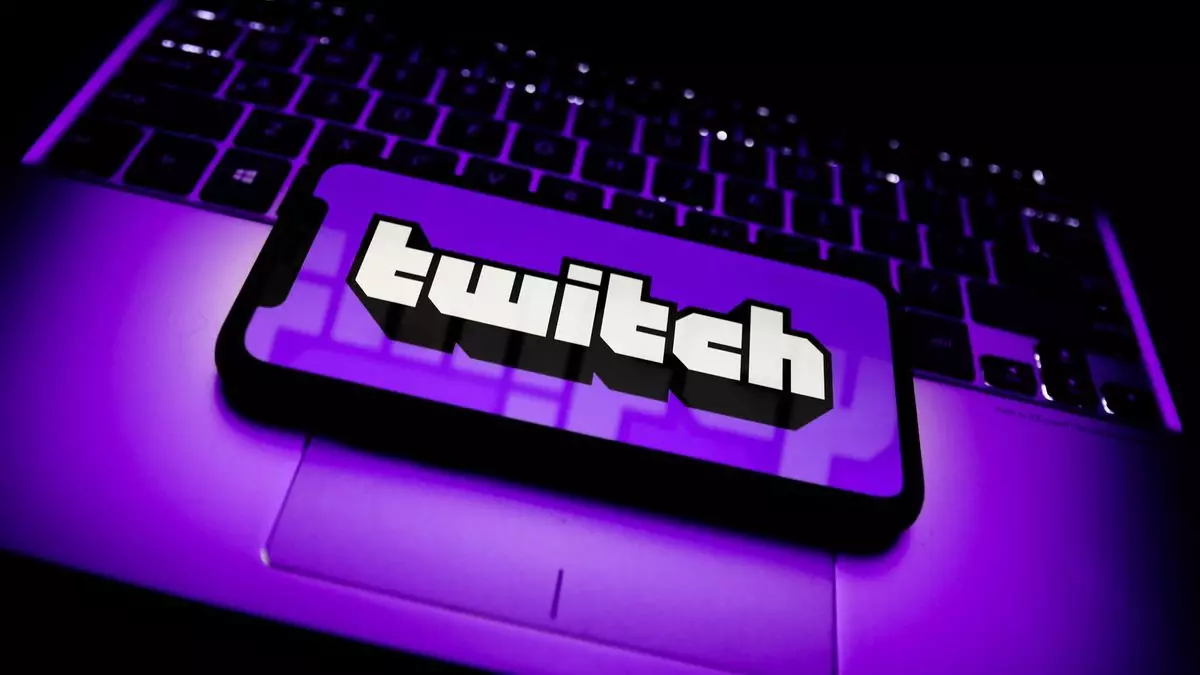In the ever-evolving landscape of online content creation, Twitch has found itself in the crosshairs of criticism and confusion regarding its newly implemented content classification label. Initially designed to help viewers navigate streams discussing politics and sensitive social issues, the policy came under fire after its introduction prompted significant backlash, particularly from marginalized communities. The subsequent modifications aimed to alleviate concerns showed Twitch’s attempt to balance content moderation with user expression, yet they remain fraught with complexity.
Twitch’s initial foray into classifying content related to sensitive issues stemmed from a tumultuous period. After allegations of Islamophobia and antisemitism circulated heavily on the platform, Twitch decided to step in with regulatory measures. Streamers like Zack “Asmongold” Hoyt faced bans for remarks deemed abhorrent, highlighting the potential consequences of unchecked discourse in online spaces. The original policy, while arguably a necessary response to hateful rhetoric, inadvertently politicized fundamental human rights discussions, particularly around gender and LGBTQ+ issues.
Streamers from the LGBTQ+ community voiced their concerns, arguing that their mere existence was rendered political, thereby causing a chilling effect that would push advertisers to steer clear of streams that contained content warnings. The friction arising from Twitch’s policies indicates a reality where content creation intersects with deeper societal issues, leaving creators vulnerable to either being silenced or unfairly labeled.
The recent modifications to Twitch’s content classification policy came as a response to the outcry regarding its ambiguous nature. Streamers discussing their “lived experiences” were no longer required to use the “Politics and Sensitive Social Issues” label. Twitch stated it sought to refine the language within its guidelines, aiming to clarify the threshold between personal anecdotes and overtly political commentary.
However, the debate didn’t abate with these revisions. The distinction between personal experience and political discourse remains nebulous. For example, what happens if a streamer shares their frustrations over losing reproductive rights in their state? Is this an anecdote or a political statement? Controversially, Twitch has replaced some specific examples with the less clear-cut term: “polarizing or inflammatory.” This vagueness leaves the door wide open for misinterpretation, where personal narratives could easily be conflated with political commentary by users with biased views.
Feedback from the Twitch community has been overwhelmingly critical of the updates. A petition on Twitch’s UserVoice forum garnered over 38,000 votes advocating for clearer guidelines that prioritized the rights of marginalized groups over ambiguous classifications. Many users argue that labeling subjects related to human rights as “political” not only diminishes the gravity of these issues but also incentivizes targeted harassment.
Comments reflecting this concern indicate frustration that the burden of interpretation lies unfairly on the most vulnerable creators. The potential for mass reporting based on biased viewpoints poses a real threat, particularly to LGBTQ+ streamers who could find themselves caught in a cycle of scrutiny simply for expressing their reality.
As Twitch navigates the dual pressures of content moderation and user engagement, the stakes for content creators have never been higher. The platform must consider how its policies affect the safety, visibility, and even economic viability of marginalized streamers who are integral to its community but often find themselves on precarious ground.
By wrestling with the thin line separating personal expression from political discourse, Twitch must make decisive changes that reflect understanding rather than punitive measures. Balancing the need for regulation with the lived experiences of content creators presents a complex challenge that reflects broader societal conversations about free speech and the responsibilities of platforms in fostering inclusive environments.
Twitch’s journey toward constructing equitable policies for content classification is far from over. While recent updates to its rules signify an awareness of community concerns, they also lay bare the complexities of defining “political” discourse versus “lived experience.” The challenge for Twitch moving forward lies in creating a framework that not only protects its users but also harmonizes the diverse voices within its platform. As the debates continue, it remains crucial that Twitch prioritizes the rights and experiences of marginalized communities, ensuring a safe and inclusive environment for all creators.

